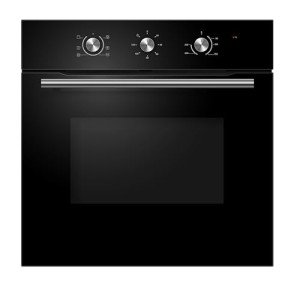The Comprehensive Guide to Electric Built-In Ovens in the UK
In the modern kitchen, built-in ovens are essential appliances that raise both performance and looks. Electric built-in ovens, in specific, have actually become a popular option amongst homeowners in the UK. This article dives into the features, advantages, setup factors to consider, and leading brands available in the UK market.
Understanding Electric Built-In Ovens
Electric built-in ovens are specifically developed to be integrated into kitchen cabinetry. Unlike freestanding models, they use a seamless and sophisticated look, making them a favorite amongst modern kitchen styles. These ovens come in various setups, including single, double, and combination models (which integrate microwave technology).
Features of Electric Built-In Ovens
Electric built-in ovens boast a variety of functions that improve use and cooking precision. Below is a comprehensive list of typical features found in these ovens:
- Digital Controls: Many designs include user-friendly digital interfaces for simple temperature level setting and time management.
- Self-Cleaning Options: Certain electric ovens featured self-cleaning functions, using high temperatures to incinerate food residues.
- Multiple Cooking Modes: Electric ovens use several cooking modes, consisting of convection, barbecuing, and combination cooking.
- Energy Efficiency Ratings: Models are often rated for energy performance, showing their consumption levels.
- Security Features: These might consist of cool-touch doors, timer alarms, and child locks to improve kitchen security.
Advantages of Electric Built-In Ovens
Electric built-in ovens are commemorated for different reasons. Among them:
- Consistent Heating: They provide uniform heat distribution, which is vital for baking and roasting.
- Visual Appeal: Built-in designs produce a smooth appearance that enhances kitchen design.
- Space Saving: They occupy less space in the kitchen than standard freestanding ovens.
- Ingenious Features: These ovens frequently come geared up with innovative features that make cooking simpler and more satisfying.
Popular Brands of Electric Built-In Ovens
The UK market uses a range of electric built-in ovens from reputable brand names. Below is a table summing up a few of the leading producers in addition to their popular designs.
| Brand | Popular Models | Key Features | Cost Range |
|---|---|---|---|
| Bosch | Series 4, Series 6 | 3D HotAir, Touch Control | ₤ 400 - ₤ 1,500 |
| Neff | Slide&& Hide, CircoTherm | Fold-away door, CircoTherm innovation | ₤ 600 - ₤ 1,800 |
| Siemens | iQ700, iQ500 | Home Connect, PerfectBake | ₤ 500 - ₤ 2,000 |
| Miele | Miele H 6260 BP | Premium, PerfectClean | ₤ 1,500 - ₤ 3,500 |
| Samsung | Double Cook, Smart Oven | SmartThings connectivity, Dual Cook function | ₤ 600 - ₤ 1,800 |
Setup Considerations
Installing an electric built-in oven requires careful preparation and professional handling. Here are some essential factors to consider:
- Space Requirements: Verify that the oven's measurements fit into the designated cabinetry.
- Electrical Supply: Ensure sufficient electrical circuitry is readily available, as electric ovens frequently require higher voltage.
- Ventilation: Consider ventilation requirements, especially if the oven uses more than one cooking mode.
- Expert Installation: It is suggested to employ a certified professional for setup to guarantee security and adherence to local building regulations.
Buying Guide for Electric Built-In Ovens
When selecting an electric built-in oven, potential buyers ought to consider a number of crucial factors:
- Capacity: Determine the size based upon cooking requirements and kitchen space.
- Functionality: Assess features that are necessary for your cooking style (e.g., convection cooking).
- Energy Efficiency: Look for models with high energy performance rankings to conserve on energy bills.
- Warranty and Support: Choose brands that provide sufficient support and guarantees for assurance.
- User Reviews: Research user feedback to comprehend the performance and reliability of various designs.
Frequently Asked Questions about Electric Built-In Ovens
1. What is the distinction in between built-in and integrated ovens?Built -in ovens are developed to be set up into existing cabinetry, while integrated ovens fit perfectly behind cabinet doors and are normally smaller sized. 2. Are electric built-in ovens more energy-efficient than gas ovens?Generally, electric ovens are considered more energy-efficient when
it concerns constant temperature level control; however, this can differ based on specific designs and usage. 3. How frequently must I clean my electric built-in oven?It's suggested to clean up the oven after every few
usages, specifically for non-self-cleaning designs, to avoid buildup. Self-cleaning models need to be utilized according to the maker's guidelines. 4. Can ovensandhobs install a built-in oven myself?While some house owners might attempt DIY installations, it is suggested to employ a certified professional to make sure security and compliance with electrical policies. 5. What
are the most common concerns with electric built-in ovens?Common issues consist of defective heating components, concerns with temperature policy, and malfunctioning digital controls.
Electric built-in ovens represent an integration of effectiveness, style, and modern-day cooking abilities. Their versatile functions and aesthetic appeal make them an excellent addition to any kitchen layout. By thinking about the
buying aspects and being informed about different brands and functions, consumers can discover the best electric built-in oven to fulfill their culinary needs. Overall, these appliances continue to change the method people cook, emphasizing convenience and development in the heart of the home.

